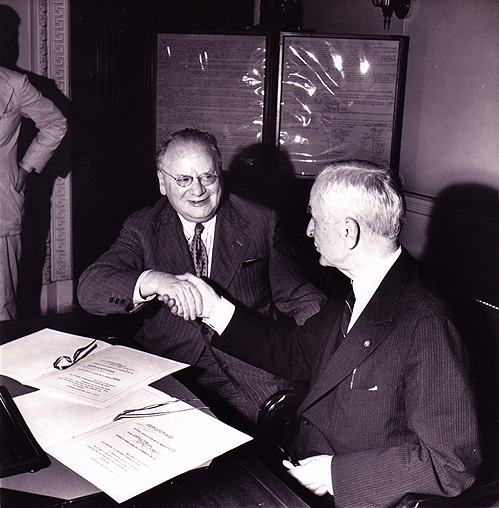 |
| Litvinov and Cordell Hull |
Nesta declaração, 25 países aliados reafirmaram suas posições sobre o Eixo, e sedimentaram a sua aliança.
Chegar a um acordo comum sobre este texto, com os 25 países, foi custoso e demorado. Um termo em especial, foi ponto de polêmica com os soviéticos: "liberdade religiosa".
A aprovação deste termo exigiu uma conversa pessoal entre o presidente Roosevelt e o embaixador soviético Litvinov, e Churchill relembra este acontecimento:
[...] The President had exerted his most fervent efforts to persuade Litvinov, the Soviet Ambassor, newly restored to favour by the turn of events, to accept the phrase "religious freedom". He was invited to luncheon with us in the the President room's on purpose. After his hard experiences on his country he has to be careful. Later on the President had a long talk with him alone about his soul and the dangers of hell-fire. The accounts which Mr. Roosevelt gave us on several occasions of what he said to the Russian were impressive. Indeed, on one occasion I promised Mr. Roosevelt to recommend him for the position of Archbishop of Canterbury if he should lose the next Presidential election. I did not however make any official recommendation to the Cabinet or the Crown upon on this points, and as he won the election in 1944 it did not arise. Litvinov reported the issue about "religious freedom" in evident fear and trembling to Stalin, who accepted it as a matter of course. [...]
W. C. The Grand Alliance.
Nenhum comentário:
Postar um comentário